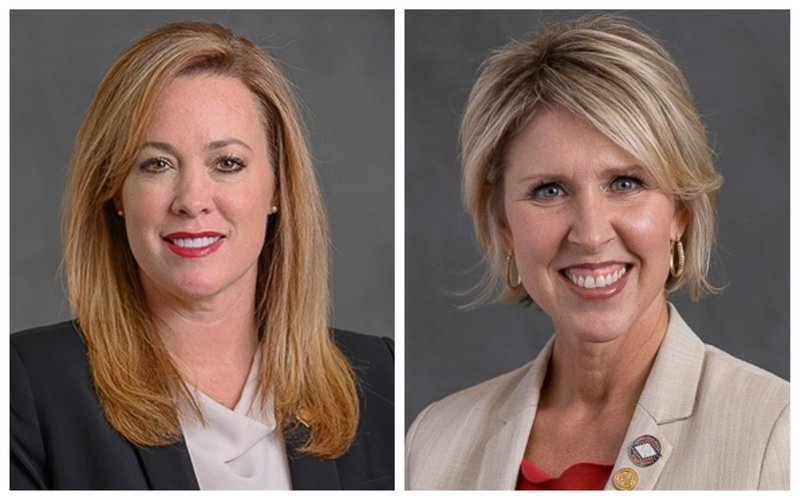A state ethics panel found no wrongdoing on the part of Court of Appeals candidate Stephanie Potter Barrett in her campaign's solicitation of signatures from jurors outside of a murder case that she was prosecuting last August.
A complaint stemming from the incident was unanimously dismissed by the Arkansas Ethics Commission on Friday, according to a letter that the commission sent to Barrett. She is seeking the open seat on the Court of Appeals' 4th District, which covers much of western Arkansas.
The letter sent to Barrett indicated that the complaint was filed by Linda Napper, a campaign consultant for Barrett's opponent, District Court Judge Emily White.
"This was a baseless claim made by my political opponent's campaign manager," Barrett said in an email Friday. "I had faith in the ethics commission to sort out the truth and I am thankful they did and that the decision was unanimous."
Concerns about courthouse campaigning by Barrett, the elected prosecutor in Miller County, first arose last August shortly after Barrett obtained a successful murder conviction against 53-year-old Marvin Arrell Stanton. Stanton was sentenced to life in prison, but his attorney, Jeff Rosenzweig, quickly sought a new trial, alleging that Barrett had tainted the case by seeking signatures from potential jurors on petitions she filed. Judicial candidates can file for office by submitting petitions rather than paying a filing fee.
At that time, Rosenzweig provided the Arkansas Democrat-Gazette with photos of Barrett's petitions, which contained the names of five people who had been called for jury selection in the case, including one who later served on the jury.
Barrett denied having done anything unethical, saying the petitions were solicited by her aunt at the courthouse without her knowledge. She also disputed that any jurors had been swayed by her campaign's presence outside the trial.
Miller County Circuit Judge Kirk Johnson denied Rosenzweig's request for a new trial. Stanton's conviction is on appeal to the Arkansas Supreme Court.
Following an investigation that concluded Friday, a four-judge panel of the Ethics Commission agreed that there was no evidence showing Barrett was involved in soliciting the signatures outside the courtroom.
The commission did find that Barrett's campaign materials had been distributed in the public courthouse, but took no action on the matter.
"The Commission determined that you did not exercise control over the petitions," the letter stated. "The evidence indicated that your aunt, Peggy Burson, separate and apart from any instruction or permission from you, brought the petitions into the courthouse to gather signatures."
Napper, the campaign consultant who filed the complaint, expressed appreciation Friday for the commission's investigation. White "had nothing to do with it," she added.
Rosenzweig said he was surprised that the Ethics Commission took no action against Barrett or her campaign.
"If that isn't a violation of election laws, it ought to be," he said in an email.
The commission's dismissal of the complaint comes a day after the Arkansas Supreme Court ruled against Barrett's attempts to have White kicked off the ballot.
Barrett had charged in a lawsuit that White, an appointed district judge, was not a qualified resident of the Court of Appeals' 4th District. White bought a new house and changed her voter registration address last year.
The Supreme Court upheld a lower court's ruling that Barrett lacked evidence to prove that White still lived outside the district.
The court did rule that White could not appear on the ballot with the title "judge" in front of her name, because she wasn't elected to that position.
The nonpartisan judicial general election is March 3. Early voting starts Feb. 18.
Metro on 01/25/2020
